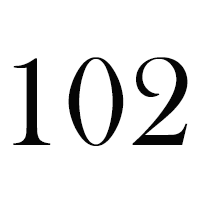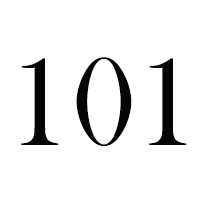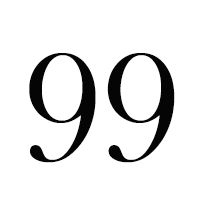3 years, 3 months and 3 days. That was the length of my incredible trip. Yes, I can apply all the superlatives without hesitation. The adventure of a lifetime. A life-changing experience. An incredible learning opportunity. All of this is true.
Is there life after the trip?
People often tell me that the adjustment after such a journey must be really hard. I didn’t feel this way. Even for a free spirit, being on the road for three years makes you appreciate some stability. I couldn’t possibly describe what a joy it is not to have to pack your bag yet again after a couple of days in your apartment.
I also grew to miss work. Surprising as it may sound, work is a source of meaning. I could have continued travelling as there was no immediate financial pressure to return. But I felt like it was time.
How to summarise this trip? 70 countries, 5 continents, a full circle around the world and then some. Slept in innumerable hotel, hostel, apartment, B&B, AirBnB beds, took a ridiculous number of planes, buses, ships, and trains, met an endless variety of people. So many events have taken place, it feels like a whole lifetime of experiences. Those who know me won’t be surprised – I of course kept a list of all the decisively new experiences that I tried. It goes from sky diving to a meditation course, though some items cannot be disclosed. By the end of the trip, there were at least 58 positions.
There are two major changes. Work feels different. And travel feels different.
Once you’ve been to so many places, and not just “been”, but spent quite a while in them, a month here, several months there, every place feels like home. And no place feels like home. I am never lost or awed or even really disoriented anywhere. And yet I don’t feel a particular attachment to any place.
The work on the other hand feels a lot more rewarding. This is what I keep repeating to my director – work is a reward. In the past it felt like a duty. Now it feels like an opportunity to apply myself. Quite a difference. Also the nature of my work has changed, and I feel lucky about it.
And nobody said I have to stop travelling! For example, this year I’ve already spent time travelling in…
US Deep South,
Sicily,
South Africa, Swaziland and Lesotho,
Kyrgyzstan and Kazakhstan,
and Switzerland,
not even mentioning minor trips like a weekend here and there!
I am writing this in sunny Bern, the capital of the Swiss Confederation. What a great place to be!
 A visit to Haiti was in my sights already during my first visit to Santo Domingo. That time I couldn’t make it – despite trying numerous times to buy a bus ticket to Port-au-Prince. There was always a reason – the office of the only bus company that plies the route was unexplicably closed; or they wouldn’t have tickets; or the border was closed and the bus was cancelled – “Huelga!” shouted at me a black saleswoman when I inquired about the reasons.
A visit to Haiti was in my sights already during my first visit to Santo Domingo. That time I couldn’t make it – despite trying numerous times to buy a bus ticket to Port-au-Prince. There was always a reason – the office of the only bus company that plies the route was unexplicably closed; or they wouldn’t have tickets; or the border was closed and the bus was cancelled – “Huelga!” shouted at me a black saleswoman when I inquired about the reasons. On the last day of our cruise the crew organised a “meeting with the captain”. It was a truly fascinating hour during which the captain, his first mate and a third officer answered all kinds of questions from the audience. For example we learnt that our ship (“Jewel of the Seas”) does not all the time travel in circle in the Caribbean from Puerto Rico to Puerto Rico. Rather, depending on the season the ship will go to different corners from the world. In summer it’s in Alaska, in the fall it’s in the Mediterranean, at some point it even goes to South East Asia. When asked which of the places on the itinerary were his favourites, the captain to my surprise said it was Grenada.
On the last day of our cruise the crew organised a “meeting with the captain”. It was a truly fascinating hour during which the captain, his first mate and a third officer answered all kinds of questions from the audience. For example we learnt that our ship (“Jewel of the Seas”) does not all the time travel in circle in the Caribbean from Puerto Rico to Puerto Rico. Rather, depending on the season the ship will go to different corners from the world. In summer it’s in Alaska, in the fall it’s in the Mediterranean, at some point it even goes to South East Asia. When asked which of the places on the itinerary were his favourites, the captain to my surprise said it was Grenada. Saint Lucia is rightly considered the most authentic of all the Caribbean islands. Thanks to its population, climate, location and history it has preserved a particular character. Even though it is not the most isolated island and gets its share of visitors, most of it is nevertheless difficult to access and its population 174 thousand is sufficiently large to withstand the sea of tourists.
Saint Lucia is rightly considered the most authentic of all the Caribbean islands. Thanks to its population, climate, location and history it has preserved a particular character. Even though it is not the most isolated island and gets its share of visitors, most of it is nevertheless difficult to access and its population 174 thousand is sufficiently large to withstand the sea of tourists. Antigua and Barbuda was the first “independent” country that we visited on our cruise. I put “independent” in reversed quotes for the simple reason that in the Caribbean the notion of independence is very relative. In many ways the island mini-states here are closely tied to their former colonial masters, and their very economy is such that it’s built around visitors and the vast majority of consumed goods are imported. And yet formally Antigua and Barbuda is perfectly independent. The total population of this country is 80 thousand people, 98% of which live on the larger of the two islands – Antigua. Antigua plays the role of a transport node of the Caribbean – even though there are only cursory regular airplane connections between the various islands, the flights that exist tend to all connect right here in Antigua airport.
Antigua and Barbuda was the first “independent” country that we visited on our cruise. I put “independent” in reversed quotes for the simple reason that in the Caribbean the notion of independence is very relative. In many ways the island mini-states here are closely tied to their former colonial masters, and their very economy is such that it’s built around visitors and the vast majority of consumed goods are imported. And yet formally Antigua and Barbuda is perfectly independent. The total population of this country is 80 thousand people, 98% of which live on the larger of the two islands – Antigua. Antigua plays the role of a transport node of the Caribbean – even though there are only cursory regular airplane connections between the various islands, the flights that exist tend to all connect right here in Antigua airport.